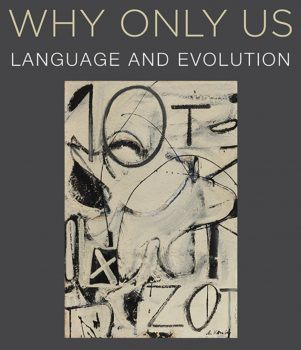Robert Berwick & Noam Chomsky in The Inference Review:
 In 1866, the Linguistic Society of Paris issued a stern injunction: “The Society does not accept any communication concerning either the origin of the language or the creation of a universal language.”1 On peut facilement imaginer pourquoi. The late eighteenth and early nineteenth centuries, as Giorgio Graffi observed, marked the blossoming of modern comparative linguistics.2 William Jones, a British judge in India, and Jacob Grimm, the author of a collection of morbid German fairy tales, were among the pioneering linguists studying Indo-European languages. They aimed collectively to discover historical connections among languages and to reconstruct their origins in an Indo-European Ursprache. But their work focused on the external features of individual languages, rather than on the origin of language as a cognitive faculty; and it was conducted, as Sylvain Auroux has emphasized, against a backdrop of evolutionary and phylogenetic thought.3 Linguists told themselves many stories about the evolution of language, and so did evolutionary biologists; but stories, as Richard Lewontin rightly notes, are not hypotheses, a term that should be “reserved for assertions that can be tested.”4
In 1866, the Linguistic Society of Paris issued a stern injunction: “The Society does not accept any communication concerning either the origin of the language or the creation of a universal language.”1 On peut facilement imaginer pourquoi. The late eighteenth and early nineteenth centuries, as Giorgio Graffi observed, marked the blossoming of modern comparative linguistics.2 William Jones, a British judge in India, and Jacob Grimm, the author of a collection of morbid German fairy tales, were among the pioneering linguists studying Indo-European languages. They aimed collectively to discover historical connections among languages and to reconstruct their origins in an Indo-European Ursprache. But their work focused on the external features of individual languages, rather than on the origin of language as a cognitive faculty; and it was conducted, as Sylvain Auroux has emphasized, against a backdrop of evolutionary and phylogenetic thought.3 Linguists told themselves many stories about the evolution of language, and so did evolutionary biologists; but stories, as Richard Lewontin rightly notes, are not hypotheses, a term that should be “reserved for assertions that can be tested.”4
The human language faculty is a species-specific property, with no known group differences and little variation. There are no significant analogues or homologues to the human language faculty in other species.
More here.
